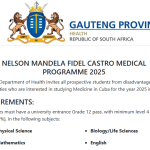From: Immigration, Refugees and Citizenship Canada
News release
January 22, 2024—Ottawa- International students enrich our communities and are a critical part of Canada’s social, cultural, and economic fabric. In recent years, the integrity of the international student system has been threatened. Some institutions have significantly increased their intakes to drive revenues, and more students have been arriving in Canada without the proper support they need to succeed. Rapid increases in the number of international students arriving in Canada also put pressure on housing, health care, and other services. As we work to better protect international students from bad actors and support sustainable population growth in Canada, the government is moving forward with measures to stabilize the number of international students in Canada.
The Honourable Marc Miller, Minister of Immigration, Refugees, and Citizenship, announced today that the Government of Canada will set an intake cap on international student permit applications to stabilize new growth for a period of two years. For 2024, the cap is expected to result in approximately 360,000 approved study permits, a decrease of 35% from 2023. In the spirit of fairness, individual provincial and territorial caps have been established, weighted by population, which will result in much more significant decreases in provinces where the international student population has seen the most unsustainable growth. Study permit renewals will not be impacted. Those pursuing master’s and doctoral degrees and elementary and secondary education are not included in the cap. Current study permit holders will not be affected.
IRCC will allocate a portion of the cap to each province and territory, which will then distribute the allocation among their designated learning institutions. To implement the cap, as of January 22, 2024, every study permit application submitted to the IRCC will also require an attestation letter from a province or territory. Provinces and territories are expected to establish a process for issuing attestation letters to students by no later than March 31, 2024.
These temporary measures will be in place for two years, and the number of new study permit applications that will be accepted in 2025 will be re-assessed at the end of this year. During this period, the Government of Canada will continue to work with provinces and territories, designated learning institutions, and national education stakeholders on developing a sustainable path forward for international students, including finalizing a recognized institution framework, determining long-term sustainable levels of international students, and ensuring post-secondary institutions can provide adequate levels of student housing.
To better align the Post-Graduation Work Permit Program, Canada is changing the eligibility criteria:
- International students who enroll in a study program that is a part of a curriculum licensing arrangement will no longer be qualified for a post-graduation work permit once they graduate, effective September 1, 2024. Students physically attend a private college that has been granted a license to teach the curriculum of a related public college under the terms of curriculum licensing agreements. The number of overseas students enrolling in these programs has increased significantly in recent years, even though they are subject to less regulation than public universities and can be used as a loophole to obtain a work permit after graduation.
- Soon, master’s and other brief graduate-level degree graduates will be able to apply for a three-year work permit. The existing regulations restrict master’s graduates’ ability to obtain work experience and maybe make the transition to permanent residency by basing a post-graduation work permit’s duration only on the duration of the individual’s studies program.
In the coming weeks, spouses of international students enrolled in master’s and doctoral programs will be the only ones eligible for open work visas. Spouses of international students enrolled in undergraduate and graduate programs at other levels of education will no longer be qualified.
The significant changes to the International Student Program that were just announced today go hand in hand with previous recent announcements. When combined, they seek to stabilize the total number of students entering the country and relieve pressure on housing, healthcare, and other services while also guaranteeing that genuine students have the resources and support they need for a fulfilling academic experience.
Quotes
“International students are vital to Canada and enrich our communities. As such, we have an obligation to ensure that they have access to the resources they need for an enriching academic experience. In Canada today, this isn’t always the case. Today, we are announcing additional measures to protect a system that has become so lucrative that it has opened a path for its abuse. Enough is enough. Through the decisive measures announced today, we are striking the right balance for Canada and ensuring the integrity of our immigration system while setting students up for the success they hope for.”
– The Honourable Marc Miller, Minister of Immigration, Refugees, and Citizenship
Quick facts
- In the upcoming months, Canada will keep working to give students with in-demand talents clear routes to permanent residency and investigate fresh approaches to help overseas students more smoothly enter the workforce.
- To ensure that the International Student Program benefits both incoming students and the nation at large, the department has lately implemented a number of initiatives, such as:
- On January 1, 2024, the cost-of-living requirement for study permit applicants was updated to better reflect the true cost of living in Canada and help prevent student vulnerability and exploitation.
- Commencing on December 1, 2023, post-secondary designated learning institutions are mandated to verify with IRCC each acceptance letter that an applicant from outside Canada submits. This improved verification procedure guarantees that study permits are only granted based on authentic letters of acceptance, shielding prospective students from fraud.
- Canada plans to launch focused pilot programs in 2024 to support international student cohorts that are underrepresented in Canada while they pursue their education.
Read Also:
How to Get Proof of Financial Support for Your Canadian Study Permit
How to Get Canada’s Post-Graduation Work Permit: Important Things You Need to Know
Study Permit for Canada – All You Need To Know









